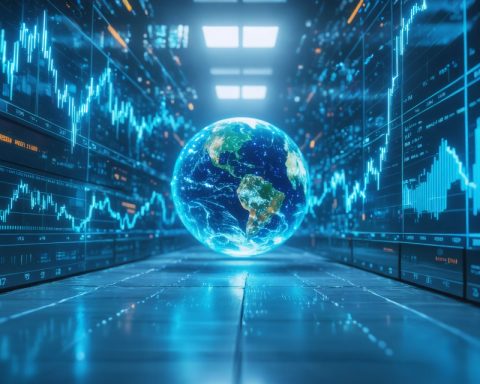Artificial Intelligence (AI) is transforming industries across the globe, but what exactly do AI engineers do? Behind the powerful algorithms and futuristic applications lies a fascinating and essential role driving technological advancements.
AI engineers specialize in developing intelligent systems that can perform tasks generally requiring human intelligence. These tasks range from simple automation to complex problem-solving in areas like computer vision, natural language processing, and robotics. The primary goal is to create systems that can learn, reason, and adapt to new scenarios, effectively mimicking human intelligence.
A significant aspect of an AI engineer’s role involves designing and training machine learning models. This process includes selecting the appropriate algorithms, leveraging large datasets, and employing powerful computational resources to train models that can recognize patterns and make predictions. Engineers use a variety of tools and programming languages such as Python, TensorFlow, and PyTorch to build and implement these models effectively.
Furthermore, AI engineers often engage in data analysis and preprocessing. They ensure that data fed into AI systems is clean, relevant, and well-structured. Since the accuracy of AI models heavily depends on the quality of data, this step is crucial.
AI engineers also focus on enterprise deployment and ongoing system maintenance. This involves integrating AI solutions into existing business processes and making sure they operate smoothly over time. Continuous evaluation and updating of models are necessary to keep pace with evolving data patterns and technology advancements.
In essence, AI engineers play a pivotal role in advancing the field of artificial intelligence, ensuring systems are not only intelligent but also reliable and beneficial across various domains. With their expertise, the digital world continues to advance, offering innovative solutions and insights into many aspects of life and industry.
The Hidden Impact of AI Engineers on Daily Life: New Revelations
Apart from the technical prowess and innovation, AI engineers significantly influence everyday life, community dynamics, and even national economies. While the primary focus is often on technological breakthroughs, it is equally important to consider how these developments alter societal experiences.
Empowering Local Economies: AI engineers contribute to economic growth by enhancing productivity and creating new job opportunities. Although there are concerns about automation leading to job losses, the demand for AI expertise is spawning new career avenues in data analysis, system maintenance, and AI ethics. This transition prompts industries to adapt and reassess workforce skill requirements, encouraging educational institutions to ramp up AI-focused curricula.
Ethical and Privacy Concerns: The work of AI engineers raises significant ethical debates, especially around data privacy and algorithmic bias. As AI systems are integrated into areas like healthcare and law enforcement, the potential for bias in AI decision-making becomes a pressing issue. Engineers must ensure AI applications uphold ethical standards and protect personal privacy, challenging them to innovate responsibly.
Global Collaborative Efforts: AI engineering fosters international collaboration, breaking down geographical barriers and encouraging knowledge exchange. Engineers frequently participate in global conferences and workshops, where they share insights and advancements. This connectivity has accelerated AI research and encouraged diverse perspectives in problem-solving.
Addressing the question—What do artificial intelligence engineers do?—they not only build intelligent systems but also shape societal structures and future economic landscapes. To explore more about this transformative field, visit TensorFlow or PyTorch for insightful resources and updates.








